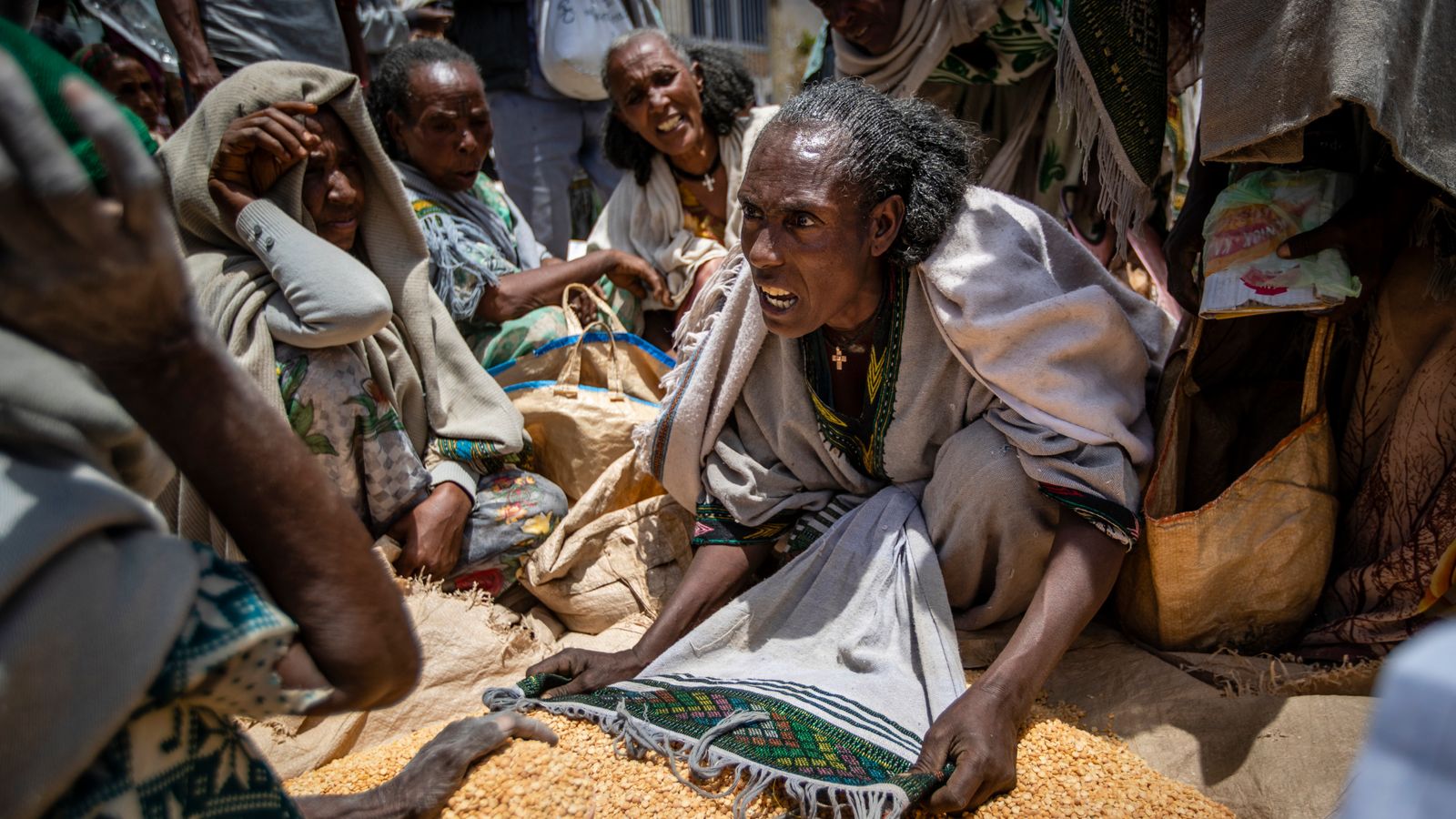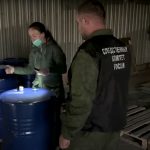The United Nations has issued a dire warning about the growing crisis in Ethiopia being a “stain on our consciousness”, as thousands of people face starvation while war rages on.
The conflict in Ethiopia began last November between Tigrayan and Ethiopian government forces after Prime Minister Abiy Ahmed, who was the winner of the 2019 Nobel Peace Prize, announced a military offensive to overthrow Tigray’s regional ruling party, the Tigray People’s Liberation Front (TPLF).
He said this was a necessary response to TPLF attacks on military camps and soon after, reports of people starving started to emerge after witnesses described how Ethiopian and allied forces had destroyed or looted food sources.
The UN’s humanitarian chief, Martin Griffiths, has now revealed only 10% of needed humanitarian supplies have been reaching Tigray recently.
He said: “So people have been eating roots and flowers and plants instead of a normal steady meal.
“The lack of food will mean that people will start to die.”
Mr Griffiths also called the crisis a “stain on our consciousness” as he described a recent visit to Tigray, where around 200,000 children have also missed out on getting vaccinations since the fighting began.
Ethiopia: ‘I don’t know if they realised I was a person’ – Women subject to sexual violence in Tigray
Ethiopia: UN warns it will imminently ‘run out of food’ in refugee camps
Olympic legend and now successful businessman Haile Gebrselassie warns West not to push Ethiopia
He added the lack of fuel was also “pretty well down to zero now”.
Humanitarian workers have struggled to bring supplies when boarding flights to Tigray, with even their own items such as multivitamins, can openers and medicines banned.
Please use Chrome browser for a more accessible video player
Mr Griffiths also said he was searched when he visited the region, with authorities even asking him why he was carrying earphones.
He said “the war doesn’t look as if it’s finishing any time soon”, despite the UN’s pleas for both sides to stop fighting and seek peace instead.
He added the fighting has even started to spread into the region of Amhara nearby, which could mean thousands of people could be at risk of starvation and a lack of aid there too.
Mr Abiy’s government also accused humanitarian workers of supporting the Tigray fighters, which has made getting aid to the region extremely difficult.
However, Billene Seyoum, the spokeswoman for the PM, did not respond to recent questions about this.
Mr Griffiths responded to the government’s accusation by calling them “unacceptable and unfair”.
He said he told the government to provide evidence of misconduct by humanitarian workers so that the UN could investigate, but added “so far as I’m aware, we haven’t had such cases put to us”.
Mr Griffiths also expressed his hope for change as Ethiopia prepares to see a new formed government next week. This will mean the prime minister gets another five years in office.
He said: “We’d all like to see is with that election inauguration, that we would see new leadership leading Ethiopia away from the abyss that it’s peering into at the moment, that the national dialogue process which he discussed with me in the past, and his deputy discussed with me last week, that needs to happen.
“It needs to be coherent, it needs to be inclusive and it needs to be soon.”






















